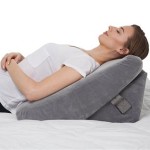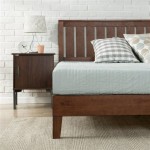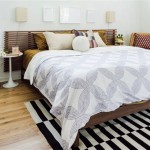Which Cotton Bed Sheets Are the Best Quality?
Choosing the right bed sheets can significantly impact your sleep quality and overall comfort. Cotton, known for its breathability, softness, and durability, remains a popular choice for bedding. However, not all cotton bed sheets are created equal. Understanding the different types of cotton and their characteristics can help you select the best quality sheets for your needs.
Types of Cotton for Bed Sheets
Cotton fibers, the building blocks of fabrics, vary in length, strength, and softness. Higher-quality cotton generally has longer fibers, resulting in stronger, smoother, and more durable fabrics. Here are some common types of cotton used for bed sheets, ranked from least to most luxurious:
- Open-End Cotton: This type of cotton uses shorter fibers spun into yarn using a simple, less expensive process. Open-end cotton fabrics are typically less durable, have a rougher texture, and are prone to pilling. They are often found in lower-priced bed sheets.
- Ring-Spun Cotton: This cotton uses longer fibers twisted together to create stronger, smoother yarns. Ring-spun cotton fabrics are more durable, have a softer feel, and are less likely to pill. They are often found in mid-priced bed sheets.
- Combed Cotton: This cotton undergoes an additional process called "combing" that removes shorter fibers and impurities, resulting in exceptionally smooth and strong yarns. Combed cotton fabrics are the most luxurious, feel incredibly soft, and have a lustrous sheen. They are typically found in higher-priced bed sheets.
- Egyptian Cotton: Known for its long, strong fibers, Egyptian cotton is prized for its softness, durability, and luxurious feel. Egyptian cotton is often used in high-end bed sheets and is known for its long staple length, which allows for the creation of exceptionally soft and strong fabrics.
- Pima Cotton: Similar to Egyptian cotton in quality, Pima cotton is an American-grown variety known for its extra-long staple fibers. Pima cotton is also known for its durability and softness. It provides a smooth, silky feel and is often used in high-end bedding.
Yarn Count and Thread Count Explained
Two key indicators of bed sheet quality and softness are yarn count and thread count. While thread count is often used as a measure of quality, it's important to understand that a higher thread count doesn't always equate to better quality. Yarn count, which refers to the thickness of the yarn used to weave the fabric, is a more reliable indicator of softness and durability.
Yarn count: Higher yarn counts indicate finer, thinner yarns, resulting in softer, more luxurious fabrics. A yarn count of 60s or higher is generally considered high-quality and will produce sheets with a luxurious feel.
Thread count: This measurement refers to the number of threads per square inch of fabric. While a higher thread count might seem desirable, it doesn't always guarantee better quality. Factors like yarn quality, weaving method, and fabric construction play a significant role in overall sheet quality and feel.
Be aware that some manufacturers use deceptive tactics to inflate thread counts by using thinner yarns or weaving them more tightly. Look for reputable brands known for their quality and transparency in thread count labeling.
Other Factors to Consider
In addition to type of cotton and yarn count, there are other factors to consider when selecting bed sheets:
- Weave: The way the yarns are interlaced influences the feel and durability of the fabric. Common weaves for bed sheets include percale, sateen, and plain weave.
- Weight: Bed sheet weight is measured in grams per square meter (GSM). Higher GSM usually indicates a heavier, more substantial fabric. However, preference for weight varies depending on climate and individual preferences.
- Color and Pattern: Choose colors and patterns that complement your bedroom décor and personal style. Keep in mind that darker colors and patterns might show stains more easily.
- Care Instructions: Check the care instructions before purchasing, as some cotton sheets require specific washing and drying techniques.
- Certifications: Look for certifications like OEKO-TEX Standard 100, which ensures that textiles have been tested for harmful substances. This can be a significant factor when considering the impact of your bedding on your health and the environment.
By considering these factors and understanding the different types of cotton and thread counts, you can choose quality cotton bed sheets that provide superior comfort and durability for a restful night's sleep.

The Best Cotton Sheets For 2024 Reviews By Wirecutter

The 8 Best Sheets Of 2024 Reviews By Wirecutter

The Best Cotton Sheets In 2024 Tried And Tested Cnn Underscored

12 Best Cotton Sheets Of 2024 Tested Reviewed By Experts

8 Best Sheets For A Cozy Bed Of 2024 Reviewed

13 Best Bed Sheets On Wwd

Best Duvet Covers And Bedding Sets Tried Tested

Organic Cotton Sheets Made Safe Certified Avocado Green Mattress

Multicolor Floral Printed Bed Sheets Best Quality Bedsheet 1 2 Pillow Cover Size 108

Choosing The Best Sheets For Your Sensitive Skin Saatva
Related Posts







